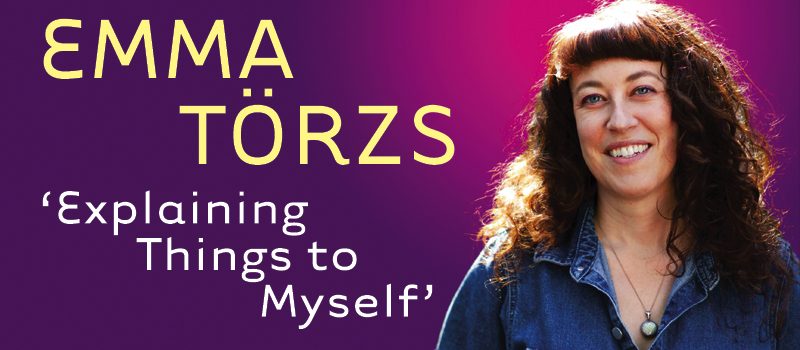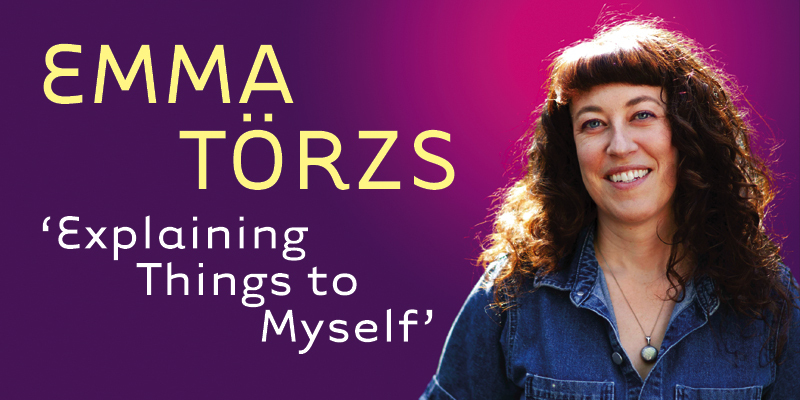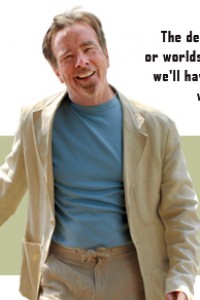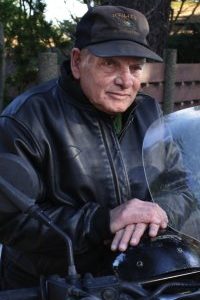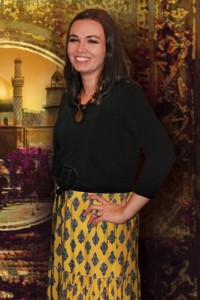Emma Törzs: Explaining Things to Myself
EMMA TÖRZS was born January 8, 1987 and grew up in Cambridge and Acton MA. After graduating college, she worked briefly in retail and restaurants before joining the MFA program at the University of Montana in Missoula, graduating in 2012. She attended the Clarion West writing workshop in 2017. In addition to writing fiction, she is also a translator, and teaches at Macalester College. She has lived in Minneapolis MN for almost 20 years.
Törzs began publishing work of genre interest with “Like a River Loves the Sky” (2018), winner of a World Fantasy Award, and has since published several SF stories in publications including Lightspeed and Strange Horizons. She published literary fiction earlier in her career, notably O. Henry Award winner “Word of Mouth” (2014). She received a NEA fellowship for prose in 2019.
Her debut novel, fantasy Ink Blood Sister Scribe, will be published in the US on May 30th and in the UK in July.
“I love the winter. I am maybe a bit of a weirdo in that sense. I find I do my best writing in the winter. If it’s too beautiful outside I always feel like I ought to be outside, but winter in Minneapolis is like a six-month excuse to just sit in my house writing and reading and snuggling my cat and drinking tea and indulging in all the writerly pursuits that I feel guilty indulging in when it’s too nice out.
“I grew up reading any book that I could get my hands on, but my favorite genre as a kid was always fantasy fiction. One of my favorite writers back then was Patricia C. Wrede. I was obsessed with The Enchanted Forest Chronicles. Tamora Pierce completely blew my mind with the Lioness Rampart series when I was ten, and I loved the Memory, Sorrow and Thorn series by Tad Williams. One of the books that had the biggest impact on me as a person is called Wise Child by Monica Furlong, along with another book in the series, Furlong’s Juniper. But really I read anything. Rohinton Mistry was a favorite of mine in high school, and Kate Atkinson and Gabriel García Márquez…. I could just keep listing.
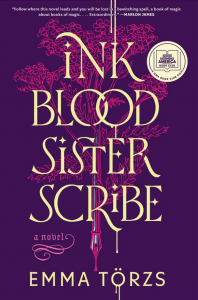 “Life in general and the people around me are big direct influences on my work. When I’m working on a project, the most direct A to B influences are my friends and my real life. But I definitely see influences from my childhood, and my youthful reading – especially in Ink Blood Sister Scribe, in part because I was really consciously trying to channel some of the early reading pleasures that I had as a young person into an adult fantasy book. I actually sat down and wrote out all of my favorite fantasy tropes and then tried to play around with them and update them into an adult fantasy novel. In Ink Blood Sister Scribe you’ll find: the chosen one, in a certain form; separated siblings; wretched British orphans (I read a lot of wretched British orphans as a child); and, of course, magical libraries and magical books. I’m influenced by basically everything I encounter – it’s hard for me to pin down.
“Life in general and the people around me are big direct influences on my work. When I’m working on a project, the most direct A to B influences are my friends and my real life. But I definitely see influences from my childhood, and my youthful reading – especially in Ink Blood Sister Scribe, in part because I was really consciously trying to channel some of the early reading pleasures that I had as a young person into an adult fantasy book. I actually sat down and wrote out all of my favorite fantasy tropes and then tried to play around with them and update them into an adult fantasy novel. In Ink Blood Sister Scribe you’ll find: the chosen one, in a certain form; separated siblings; wretched British orphans (I read a lot of wretched British orphans as a child); and, of course, magical libraries and magical books. I’m influenced by basically everything I encounter – it’s hard for me to pin down.
“I started writing almost immediately: pretty much as soon as I learned to read, I started telling stories. I have a younger sibling, my sister, who’s two and a half years younger than me, and I would tell her stories at night in our shared room, basically since I could talk and she could listen. So she was really my first reader – my first audience.
“Later, all my best friends – luckily – were also nerdy little reader kids, and we practiced what I now realize is fan fiction. We didn’t have a word for it, then, but we would write stories, or enact stories, in whatever worlds we were reading at the time. My best friend and I were obsessed with Good Omens by Neil Gaiman & Terry Pratchett, and for a while we wrote letters to each other in the voices of Crowley and Aziraphale. We had never even heard of fan fiction. This was like, pre-internet. Nobody had the internet in their house at this time – or, at least, the commoners didn’t.
“I think there are two types of people in the world: there are fans, and there are non-fans. If you’re a fan, like a true fan, you’re just born a fan. I was born a fan. I was born ready to be obsessed with the things that I love and fully engage with them in every way. So I’ve really been writing in some form or another since I started reading; the two have always gone hand in hand for me. Writing as a response to reading.
“I am definitely not a self-taught writer. There were no creative writing classes in my high school, but if there had been, I surely would have taken them. I studied creative writing in college, and though I wasn’t an English major, I was an English minor. My mother is a writer, too, a poet, and she went to graduate school at the Iowa Writers’ Workshop for poetry in the late ’70s or early ’80s. Unlike me, she didn’t pursue it professionally, but she was a creative writing professor at a community college when I was growing up, so writing and teaching writing was always in my mind as something that you could do. I was lucky in that way – it was always a possibility, for me, because my mother had done it.
“After college, I didn’t know what I was going to do, and ended up working at a liquor store and a couple different restaurants, all of which were quite miserable. The liquor store was true misery. I was so depressed – it’s a really depressing place to work. Some of my professors from college had encouraged me to get my MFA and I thought, ‘Okay, worst comes to worst, it’s just two years – funded – to write, and at the end of it I’ll technically have a terminal degree, which means I’ll be able to teach at the college level, so it’s also professional training. I might as well try it and see what happens!’ Then, somehow, after thinking I’d just test the waters, it turned into me thinking, ‘Well, this is my life now. I’m trying to be a writer.’ I don’t remember ever deciding it, exactly. I just got on the train and either forgot to get off or missed my stop or thought, ‘The scenery is really great in this observation car. I guess I’ll keep going.’
“I loved graduate school. I went to the University of Missoula, Montana, which is one of the most beautiful places in this country. I was s u r rounded by stunning natural beauty everywhere I looked, and I lived on the Clark Fork River, which remains one of my favorite rivers. I loved my classmates, I loved my professors, and generally had a blast.
“I showed up with some stories – probably the genre would be called ‘weird fiction,’ kind of slipstream – and very quickly it became apparent that this was not the place for weird or speculative stories. Nobody said that, but I was surrounded by peers and professors all writing pretty standard literary realism – place-based Western literary fiction was really the Montana brand. I wanted to impress my cohort, and fit in, and have people respect me, so I quickly stopped writing anything weird, and all during my MFA I wrote literary fiction stories. I joke now that was my ‘straight people fighting at a dinner table period,’ because that’s what I thought literary fiction was. I didn’t write any speculative short fiction in Montana, and didn’t write any speculative fiction for years and years after I graduated.
Interview design by Stephen H. Segal
Read the full interview in the June 2023 issue of Locus.
 While you are here, please take a moment to support Locus with a one-time or recurring donation. We rely on reader donations to keep the magazine and site going, and would like to keep the site paywall free, but WE NEED YOUR FINANCIAL SUPPORT to continue quality coverage of the science fiction and fantasy field.
While you are here, please take a moment to support Locus with a one-time or recurring donation. We rely on reader donations to keep the magazine and site going, and would like to keep the site paywall free, but WE NEED YOUR FINANCIAL SUPPORT to continue quality coverage of the science fiction and fantasy field.
©Locus Magazine. Copyrighted material may not be republished without permission of LSFF.


